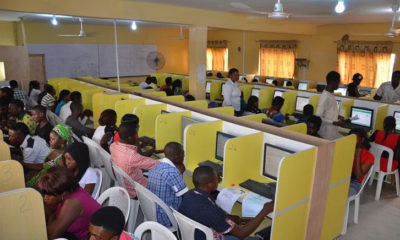G20’s think tank group warns missing generation’s skill gap must be addressed for sustained economic growth in a post COVID-19 era
A task force of the G20 research and policy advice network, Think20 (T20), has identified artificial intelligence (AI) based learning technologies as the recommended approach to overcoming current educational challenges and ensuring existing and future employees are prepared to be a member of the workforce of today and tomorrow.
With economies reeling from the repercussions of COVID-19, T20 research has highlighted it is not only the transition from education to employment that must be reformed, but also that the skills of those already within employment that no longer meet evolving market requirements. Recommendations laid out within twelve research-based T20 Policy Briefs outline how G20 member countries can address their individual challenges to ensure economies can recover and achieve sustained growth, as the increased use of AI changes the employment landscape in the digital age.
As a viable solution to the generational skills gap, Task Force 6 (TF6) outlines four key recommendations G20 member countries can adopt to utilise AI-based learning, including embracing and regulating industry micro-credentials; government funding for workplace learning in traditional sectors and those working within the platform and gig economies; the promotion of immersive, interactive AI for skills development as a learning aid and not in replacement of teachers; and the promotion of innovative technical and vocational education training (TVET) institutions with the backing of quality control and licensing bodies.
When discussing the immediate need for reforms, Heidi Alaskary, visiting senior research fellow, KFCRIS and lead co-chair of TF6, said: “The policies TF6 has chosen to focus on will have a direct impact on how we, as an international community, shape our immediate future. It is evident we are on the cusp of a significant global change and areas of reform, such as the reliance on AI, have shifted from being interesting concepts to becoming critical conversations that require urgent attention. COVID-19 has accelerated those issues that were already prevalent, revealing the varying skill gaps across all generations. The older, missing generation of over 35s would traditionally gain skills in one speciality area, with many people remaining on the same career path for life. It is this generation that must develop the agility to diversify their knowledge base and embrace data analysis if we are to ensure no-one is left behind.
“The youth generation, on the other hand, will have, on average, twelve discreet job roles throughout their lifetime. While they are technically savvy and well-versed in many of the skills future economies will require, they often lack the required resilience and soft skills the older generations have. It is now the responsibility of governments, industries and citizens to collaborate to humanise the technological process and bring balance to the future way of working.”
Paul Grainger, co-director for the Centre for Educations and Work; Enterprise Lead for the Department of Education, Practice and Society at UCL Institute of Education; and co-chair of TF6 added: “The rapid technological migration businesses have been forced to undertake during 2020 has highlighted the skill gap among over 35s and the need to balance education reform between the youth population and the missing generation of adults whose jobs are being replaced by technology. Pre-COVID-19, the fourth industrial revolution was already rebalancing employment away from repetitive manual work, in favour of automated, AI-supported roles. Examples of this include robots replacing hospital porters, self-checkout systems in supermarkets and the high street, and online delivery reducing the demand for shop assistants, ultimately resulting in job losses.”
The Organisation for Economic Co-operation and Development estimates global unemployment rates in May stood at 8.4 per cent and could reach 9.4 per cent by the end of 2020 as a result of COVID-19. According to the International Labour Organization (ILO), the virus could cause the equivalent of 195 million job losses. T20 predicts those economies heavily reliant on traditional service industries, such as retail and wholesale, food and accommodation, business services and administration, and manufacturing, which together add up to 37.5 per cent of global employment, will be most negatively impacted. Those dependent on manufacturing, however, will feel less of an impact compared to the other ILO-listed sectors as the demand for goods is still high. It is, however, not clear how extraction economies relying on mining and natural resources will perform as, for example, reduced travel has seen a decline in oil demand. The ILO also warns agriculture, the largest sector in most developing countries, is at risk owing to containment measures and risks of food insecurity are emerging.
Various AI-learning modes were identified by TF6 to bridge the gap and begin to reskill and upskill those across both demographics. Passive, program-based learning is not recommended for those looking to challenge the learner’s powers of concentration. While this method is cost-effective, it has been ranked by TF6 as the least effective. For educational institutions and businesses looking to fully embrace AI and provide the learner with a richer educational experience, a hybrid of human interaction and bespoke digital platform learning are optimal.
Discussing how the varying learning modes can be adopted, Grainger said: “Adapting in a society where human proximity is dangerous but where social interaction is still the preferred method of training and learning is a universal challenge. However, each country must work to identify and implement a solution that works for them, or they risk economic suffering in the long term. Whether skills are taught directly, funded by the government, or indirectly funded by the sectors themselves, will vary. For many, a blended approach is likely the way forward. For example, migrating university lectures online while still conducting seminars in-person, to ensure students are receiving the social interaction they require during the learning process, reduces the danger of COVID-19 transmission by 50 per cent.
“For all generations, the secret to educating the unwilling is to make it a social act, and whether this is in person or via an immersive digital infrastructure will differ from country to country. However, the danger still prevails that if we don’t address the youth skill gap now, many countries will find themselves falling behind international growth figures as the nature of education and training has a direct impact on a country’s economy.”
TF6 concludes that while cost implications will continue to be a barrier for success for many, a challenge exacerbated by the economic implications of COVID-19, the only way in which countries can affect any long-lasting, significant changes and move comfortably into the future of work is with unified, global cooperation on minimum standards within technical and vocational training.



 Naira4 weeks ago
Naira4 weeks ago


 Naira3 weeks ago
Naira3 weeks ago


 News4 weeks ago
News4 weeks ago
 Travel4 weeks ago
Travel4 weeks ago




 Naira4 weeks ago
Naira4 weeks ago
 Naira3 weeks ago
Naira3 weeks ago


 Jobs3 weeks ago
Jobs3 weeks ago


 Travel3 weeks ago
Travel3 weeks ago


















